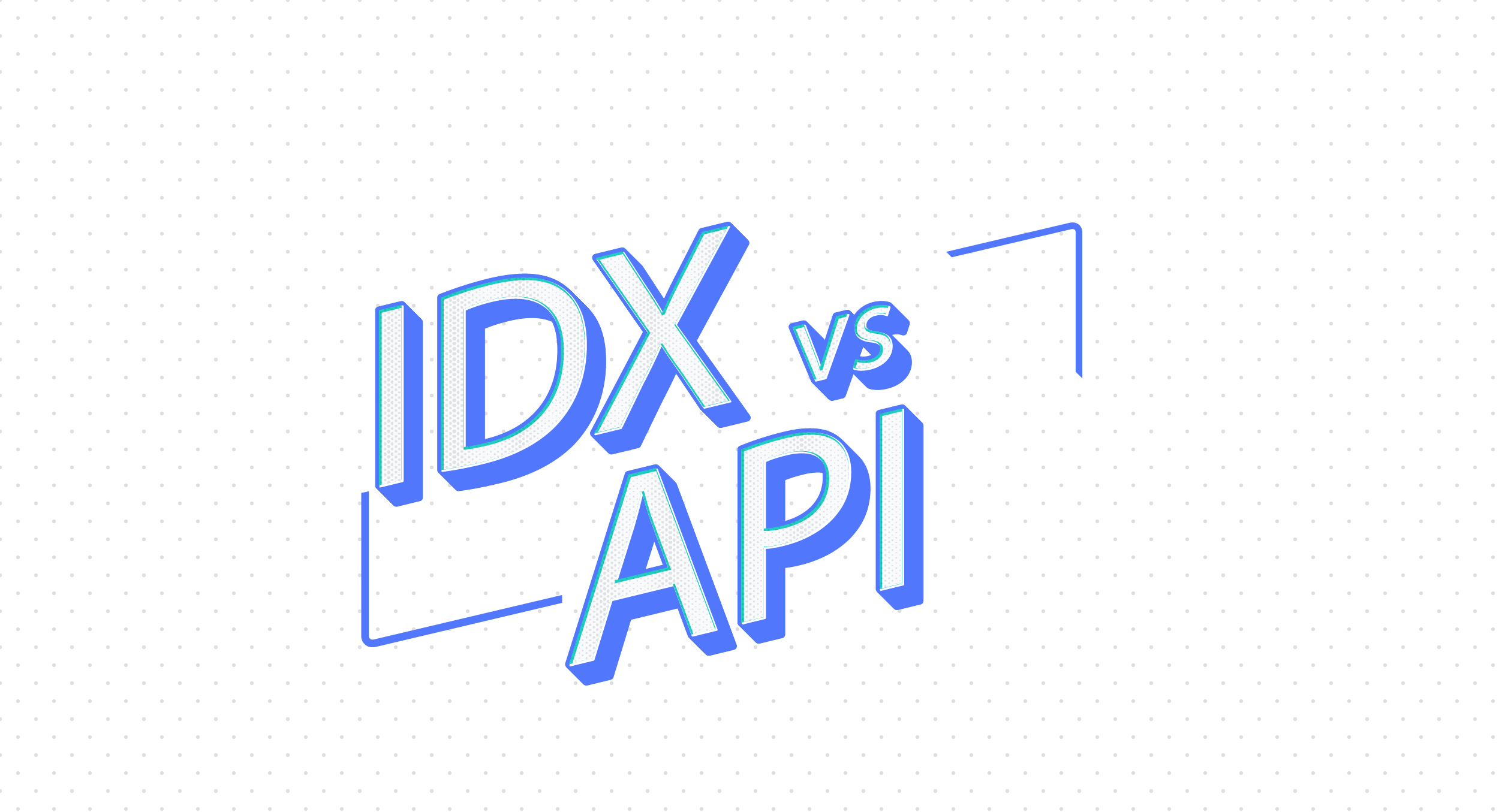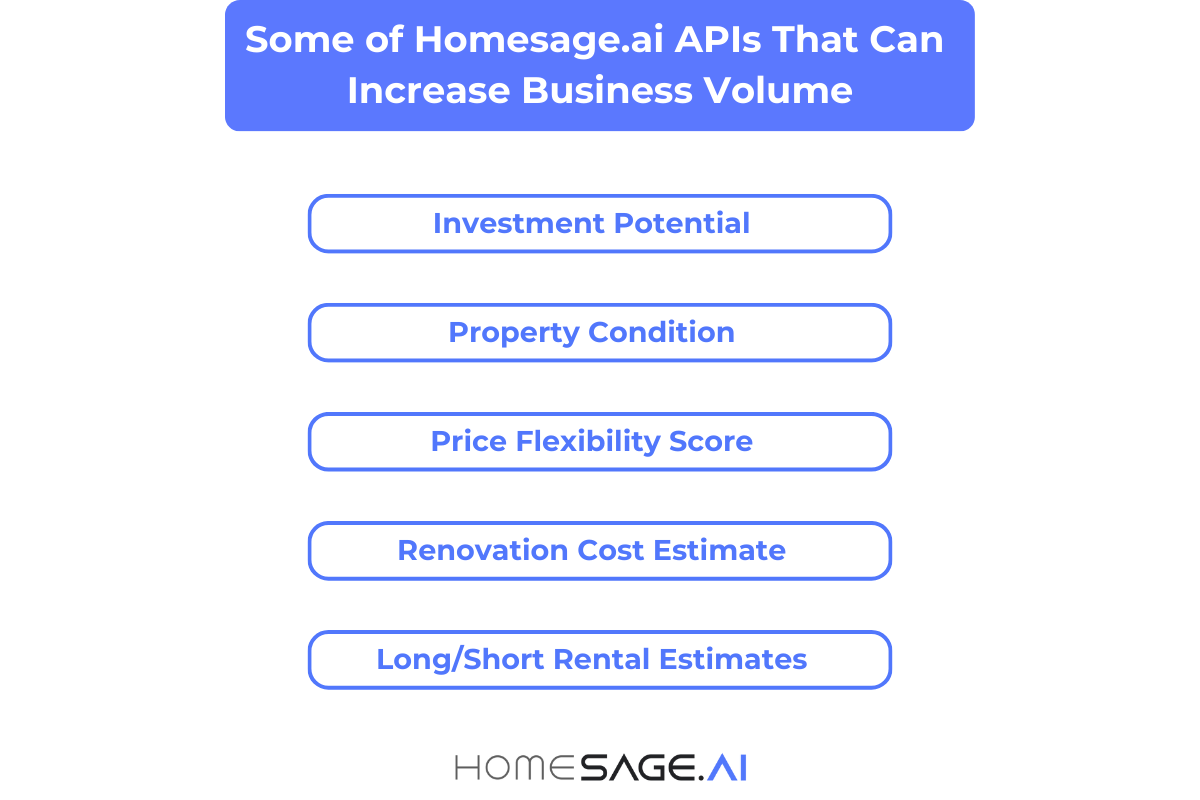Introduction
In the dynamic world of real estate technology, staying ahead of the curve is crucial for success. As we move into 2024, real estate professionals and developers are faced with a critical decision: should they rely on IDX (Internet Data Exchange) or API (Application Programming Interface) to power their real estate websites?

Both options have their advantages and disadvantages, but the choice you make can significantly impact your website performance, user experience, and competitiveness. In this article, we’ll dive deep into IDX and API, examining their pros and cons to help you make an informed decision for your real estate website in 2024.
Understanding IDX and API
Before we delve into the comparison, it’s essential to grasp what IDX and API are and how they function within the realm of real estate applications.
IDX (Internet Data Exchange)
IDX, or Internet Data Exchange, is a system that allows real estate professionals to display listings from their local multiple listing service (MLS) on their websites. It serves as a way to share property data among real estate brokers, enhancing the visibility of listings to potential buyers and sellers. IDX is typically used to create property search and display functionality on real estate websites.
Key Features of IDX:
- Property Listings: IDX provides access to a database of property listings, including details such as price, location, square footage, and photos.
- Search Filters: Users can filter property listings based on various criteria like price range, property type, number of bedrooms, and more.
- Lead Generation: IDX often includes lead capture forms, allowing agents to collect contact information from potential buyers and sellers.
- Property Details: Detailed property descriptions, images, and maps are typically available through IDX.
- Automated Updates: Listings on a real estate website powered by IDX are automatically updated as new properties are added, or existing ones are modified.
API (Application Programming Interface)
API, or Application Programming Interface, is a set of rules and protocols that enable different software applications to communicate and interact with each other. In the context of real estate websites, API can be used to fetch and display property data from various sources, including MLS databases, property management systems, proptech companies and more.
Key Features of API:
- Data Customization: API allows developers to have more control over the data they retrieve and display, enabling them to tailor the user experience.
- Real-Time Updates: Unlike IDX, which may have delays in updating listings, APIs can provide real-time data, ensuring users get the most accurate information.
- Integration Flexibility: APIs can be integrated with a wide range of other services and applications, making it easier to create a seamless user experience.
- Scalability: As your real estate app grows, APIs can accommodate increased data demands and user traffic more easily than IDX.
- Rich Content: APIs can fetch not only property data but also additional content like neighborhood information, school ratings, and more.

Pros and Cons: IDX vs. API
Now that we have a clear understanding of IDX and API, let’s dive into a detailed comparison of their strengths and weaknesses. Keep in mind that the choice between IDX and API depends on your specific needs and goals for your real estate website.
IDX Pros:
- Ease of Implementation: IDX solutions are relatively easy to set up, making them accessible to real estate professionals with limited technical expertise.
- Stability: IDX data tends to be stable and reliable, with minimal downtime or data inconsistencies.
- Low Maintenance: Once set up, IDX solutions require minimal maintenance, freeing up your time and resources for other aspects of your business.
IDX Cons:
- Limited Customization: IDX solutions can be somewhat restrictive in terms of customization. You may have limited control over the design and functionality of your real estate website or app.
- Data Delays: IDX data updates may have delays, which can result in outdated listings and frustrated users.
- Integration Challenges: Integrating IDX with other third-party services and APIs can be challenging, limiting your website’s capabilities.
- Dependency on Providers: Your website’s functionality is dependent on the IDX provider, which means you have less control over future changes and updates.
API Pros:
- Customization Freedom: APIs offer greater flexibility and customization options, allowing you to create a unique user experience tailored to your target audience.
- Real-Time Data: With APIs, you can provide users with real-time property data, ensuring that listings are always up-to-date.
- Seamless Integrations: APIs can be seamlessly integrated with various other services, such as map applications, analytics tools, and customer relationship management (CRM) systems.
- Scalability: As your real estate app grows, APIs can easily scale to accommodate increased traffic and data demands.
- Rich Content: APIs can fetch a wealth of additional information beyond property listings, enhancing the value you provide to users.
API Cons:
- Complexity: Implementing and maintaining an API-based solution can be more complex and may require technical expertise or the assistance of developers.
- Cost Considerations: Custom API development can be more expensive upfront, especially when compared to some budget-friendly IDX solutions.
- Data Quality: The quality of data fetched through APIs can vary depending on the sources.
Making the Decision: IDX vs. API in 2024
Choosing between IDX and API for your real estate website or app in 2024 ultimately depends on your specific business needs, budget, and long-term goals. Here are some key considerations to help you make an informed decision:
Choose IDX If:
- You Have Limited Technical Expertise: IDX solutions are easier to set up and maintain, making them accessible to real estate professionals with limited technical knowledge.
- Maintenance and Support: IDX providers often offer ongoing maintenance and customer support, which can be invaluable for real estate professionals who want to focus on their core business activities rather than dealing with technical issues. This support can include regular updates, troubleshooting assistance, and help with compliance-related matters.
Choose API If:
- Quality and Versatility. One compelling reason to use API (Application Programming Interface) for your real estate app is its unmatched quality and versatility. APIs provide access to a diverse range of data sources, enabling you to tap into high-quality, up-to-date information, and seamlessly integrate it into your app.
- Real-Time Data is Vital: For websites or apps that demand real-time property data to provide users with the most accurate listings, APIs are the way to go.
- Integration with Third-Party Services: If you plan to integrate your real estate website with various third-party services and APIs, APIs offer seamless integration capabilities.
- Scalability is a Concern: If you anticipate rapid growth or increased data demands, APIs can easily scale to accommodate your app’s evolving needs.
Using APIs to Complement Your Use of IDX
Using APIs in addition to IDX systems can significantly enhance the functionality and user experience of real estate apps. While IDX primarily focuses on listing data from MLSs, APIs can introduce a broader range of features and customized data points.
How APIs Enhance IDX
- Enhanced User Engagement: By integrating interactive tools and dynamic content through APIs, real estate websites and apps can increase user engagement. This can include AI-generated metrics, virtual property tours, interactive maps, and detailed property analyses.
- Customization and Personalization: APIs allow for the integration of personalized features and data analytics, offering users a more tailored experience. This can include personalized property recommendations, market trends, and user behavior analytics.
- Real-Time Data and Advanced Analytics: APIs can provide access to real-time data and sophisticated analytics that go beyond basic listing information. This includes real-time market trends, property valuation, and predictive analytics, offering a deeper insight into the real estate market.
- Operational Efficiency: APIs can streamline operations by automating data retrieval and updating processes, making the management of listings more efficient and reducing manual efforts.
Use Cases for Using Homesage.ai Products
Homesage.ai offers a wide variety of API products that can significantly complement your IDX functionalities and increase website functionality and visitor engagement.
1. Full Property Report:
- This product offers AI-derived property insights that aid in detailed property analyses and informed decision-making.
- Use case: Combine the Full Property Report with IDX listings to provide comprehensive property details, enhancing the user’s decision-making process.
2. Target Lists:
- Homesage.ai’s Target Lists provide daily lists of properties with investment potential that are generated using AI.
Use case: Use Target Lists to identify potential investment opportunities and automatically curate a list of high-potential properties for investors and homebuyers.
3. Elements APIs:
- Elements APIs grant access to a comprehensive real estate data analysis platform.
- Use case: Integrate Elements APIs with your website to enrich listing information with advanced data analysis, like Price Flexibility Score, Investment Potential, Renovation Cost, Property Condition, market trends, property valuations, and neighborhood insights, offering users a more robust and informative platform.
By leveraging these API products in conjunction with IDX, real estate websites and apps can significantly elevate their value proposition, offering a more detailed, personalized, and user-friendly experience.
Conclusion
The integration of APIs in real estate technology, especially when complemented with IDX systems, represents a significant advancement in the way real estate websites and platforms operate and serve their users. APIs offer unparalleled customization, real-time data, and advanced analytics, transforming the basic listing data provided by IDX into a more dynamic and interactive user experience.
While IDX is still a used component for listing data, the addition of APIs enriches websites and apps, making them more responsive to market trends and user needs.
For real estate professionals looking to stay ahead in the digital age, adopting a strategy that combines the strengths of both IDX and APIs is not just beneficial but essential. This approach ensures that their platforms are not only comprehensive in listing data but also innovative and user-centric, providing a competitive edge in the ever-evolving real estate market.


